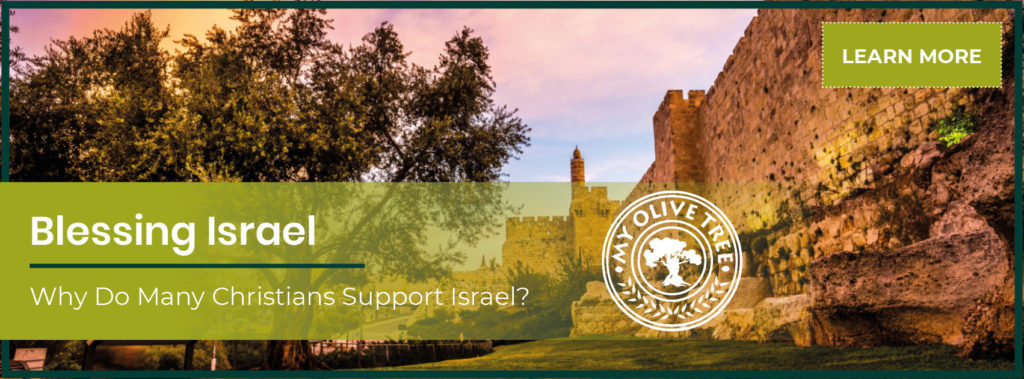Vineyards in Scripture hold a unique importance that is not limited to the biblical stories they reside in. No, they speak of more than a bunch of grapes… they speak of inheritance and promise! But what is their importance today? Why plant vineyards in Israel, let alone in the Negev desert?!
Join us as we uncover the prophetic significance and modern day importance of creating vineyards and causing the deserts of Israel to bloom!
Biblical Importance of Vineyards:
Before we can understand the importance of vineyards today, it is important that we understand the vineyards of the past. Or more specifically, vineyards of the Word.
Vineyards in Scripture are most commonly connected to inheritance. This biblical view causing a belief that one is meant to leave a vineyard for their children and an olive grove for their grandchildren. Because while an olive grove may ultimately produce an impressive crop, olive trees can take many years to mature and produce, coinciding more with the timing of grandchildren than children. A vineyard, however, does not take as many years to mature, coming to fullness sooner and acting as a blessing to one’s children. An inheritance. Just as God granted to the children of Israel…
“So it shall be, when the Lord your God brings you into the land of which He swore to your fathers, to Abraham, Isaac, and Jacob, to give you large and beautiful cities which you did not build, houses full of all good things, which you did not fill, hewn-out wells which you did not dig, vineyards and olive trees which you did not plant…”
—Deuteronomy 6:10-11
…and just as God prophesied that His children would again know after their season of wandering ended.
Vineyards in the Word:
Many biblical lessons are shown through vineyards since the understanding of a vineyard being a form of inheritance was common. However, even for those of us who do not naturally understand this connection, there is enough written in the Word to bring us to this view.
One example of this is found in 1 Kings 21…
During the time of Ahab and Jezebel there lived a man named Naboth, who owned a vineyard close to where Ahab lived and which was coveted by Ahab because of its good fruit and closeness to his palace…
“So Ahab spoke to Naboth, saying, ‘Give me your vineyard, that I may have it for a vegetable garden, because it is near, next to my house; and for it I will give you a vineyard better than it. Or, if it seems good to you, I will give you its worth in money.’
“But Naboth said to Ahab, ‘The Lord forbid that I should give the inheritance of my fathers to you!’”
—1 Kings 21:2-3
Despite Ahab giving a seemingly fair offer, Naboth understood the importance of inheritance and refused. It did not matter to him that he could be given more than it was worth. What mattered was that it had been set aside for him as an inheritance! By God, who provided the land of Israel to His children, and by Naboth’s ancestors, who prepared the land and planted the vineyard…
The monetary value of the inheritance was nothing compared to what it represented!
Israel’s Return to Inheritance:
“I will bring back the captives of My people Israel; they shall build the waste cities and inhabit them; they shall plant vineyards and drink wine from them…”
—Amos 9:14
In Amos 9:14, we read the prophecy of Amos that speaks of the bright future of Israel. That when God returns His people to their land they will rebuild not only what was broken, but replant the land… a return to their inheritance.
Vineyards in the Word depict not only the literal life-giving nature of grapevines, but a spiritual refreshing! A place where life is brought forth in abundance. Thus, for God to have His people return to the land, plant vineyards, and drink the wine, speaks of a Godly inheritance! A Godly rebuilding.
Since Amos spoke that prophecy, God HAS been returning His people to the Promised Land. And today, with the help of their Gentile brothers and sisters, God’s prophecies of planting the land—planting vineyards—are also coming to pass in fullness. Vineyards have been planted and the wine of that produce is flowing. Their inheritance is being restored!
“The wilderness and the wasteland shall be glad for them, and the desert shall rejoice and blossom as the rose;”
—Isaiah 35:1
Why My Olive Tree Plants Grapevines in Israel:
At My Olive Tree we are determined to see the Word of God made manifest and one of the ways we do this is by planting vineyards in the Negev desert in Israel!
Choosing to plant grapes in the Negev desert, one of the hottest and driest places in Israel, probably does not appear to be the wisest of decisions. After all, there are other more temperate options. Yet, with Israeli technology and God’s blessings, the vineyards we are planting—because of people like you—are thriving!
But what are the benefits of planting in the Negev? Surely, creating vineyards elsewhere in Israel fulfills biblical prophecy too?
Certainly planting vineyards in other regions of Israel would fulfill most biblical prophecies. After all, the vineyards prophesied give no specific location. And while the deserts are meant to blossom, it does not necessarily mean it must be entirely achieved with vineyards…
But there are certain advantages of planting in the Negev desert… so many blessings given to the children of God…
- It boosts Israel’s economy
- It provides jobs in a portion of the country where there are limited employment opportunities
- It brings people to the desert—from employment to tourism—helping spread Israel’s population; minimizing congestion, over-population, and sanitation problems, while utilizing the land to provide employment, food, etc.
- It restores God’s promised and prophesied inheritance for Israel
- It brings life to the desert in many forms and helps people and animals to flourish—causing it to bloom like a rose
- It provides needed shade for animals
- It reduces CO2
- It promotes new, effective farming practices and water management
- It improves the environment
- Plants—typically trees, but all plants—combat a rarely considered desert problem… flooding. Plants capture water in bark, leaves, roots, etc., slowing or lessening the effects of flooding while stabilizing the soil to prevent mudslides. This protects people, animals, and existing plants.
- Additionally, plants act as windbreakers—again more commonly trees, but all plants. This can slow wind-generated erosion; lessen dust storms; give relief to people and animals; protect property; etc.
- It brings Hope. Hope, because Bible prophecy is being fulfilled. Hope, because barren land is being brought back to life. Hope, because it is bringing new possibilities and new dreams to God’s people! The HOPE of knowing your inheritance.
How YOU Can Help:
Today, at My Olive Tree, we are working to spread a legacy of love by bringing the inheritance of Israel to life. Through the restoration of desert land—land not deemed of much value—the inheritance is not only being brought to life, it is producing hope! It is reminding the people of Israel that they—like us—have an inheritance from God. It is showing them God’s unending love in a new way! It is blessing us in turn as we tap into our own inheritance—the shared inheritance of God’s children.
YOU can be a part of this.
YOU can know the blessings that come when we bless Israel.
YOU can bring biblical prophecy to life.
YOU can restore inheritance to the Lord’s people.
YOU can display the love of God and rekindle hope.
Visit https://myolivetree.com/israel-investment-guide/ to learn more or click HERE to sponsor a grapevine!









